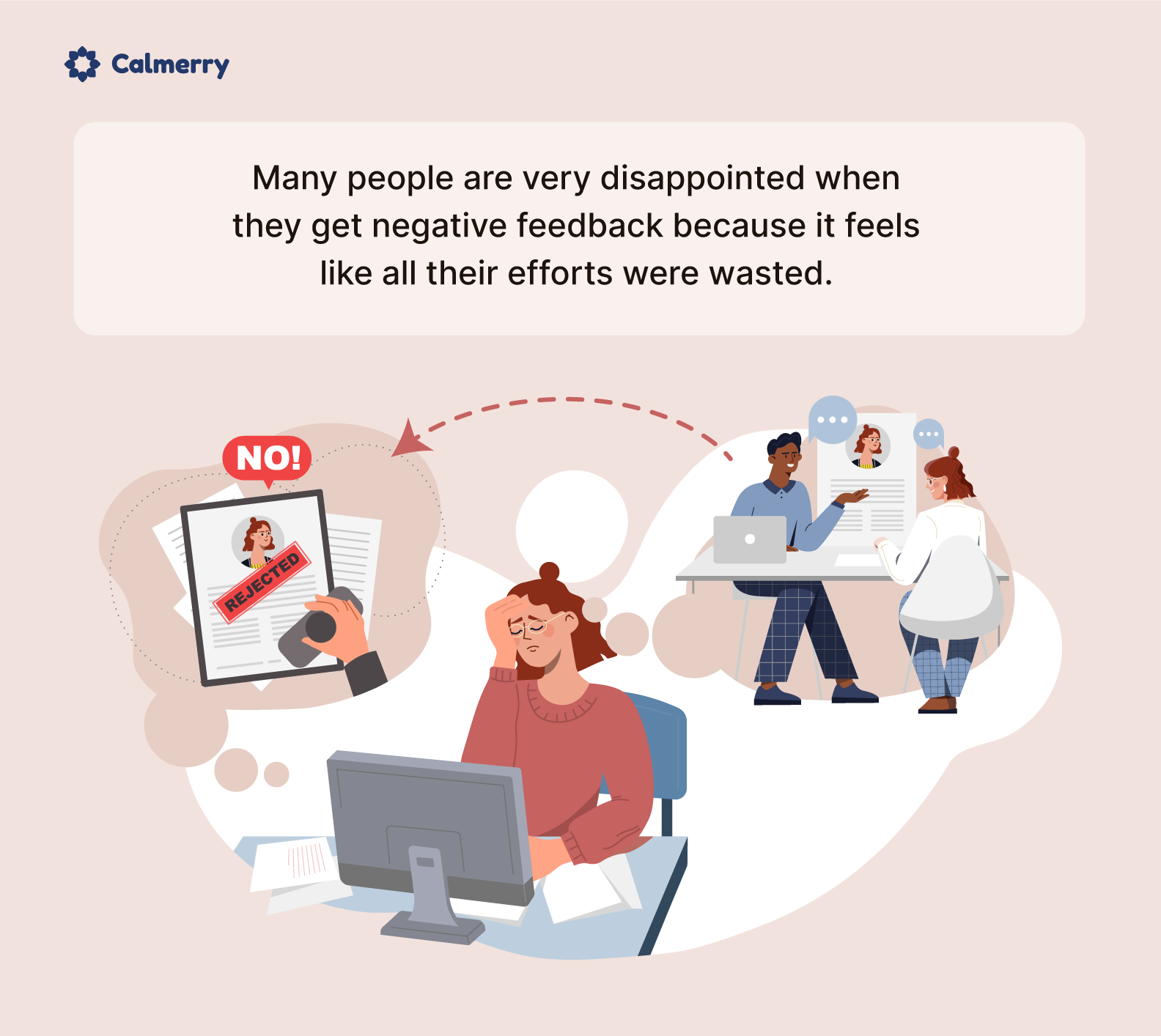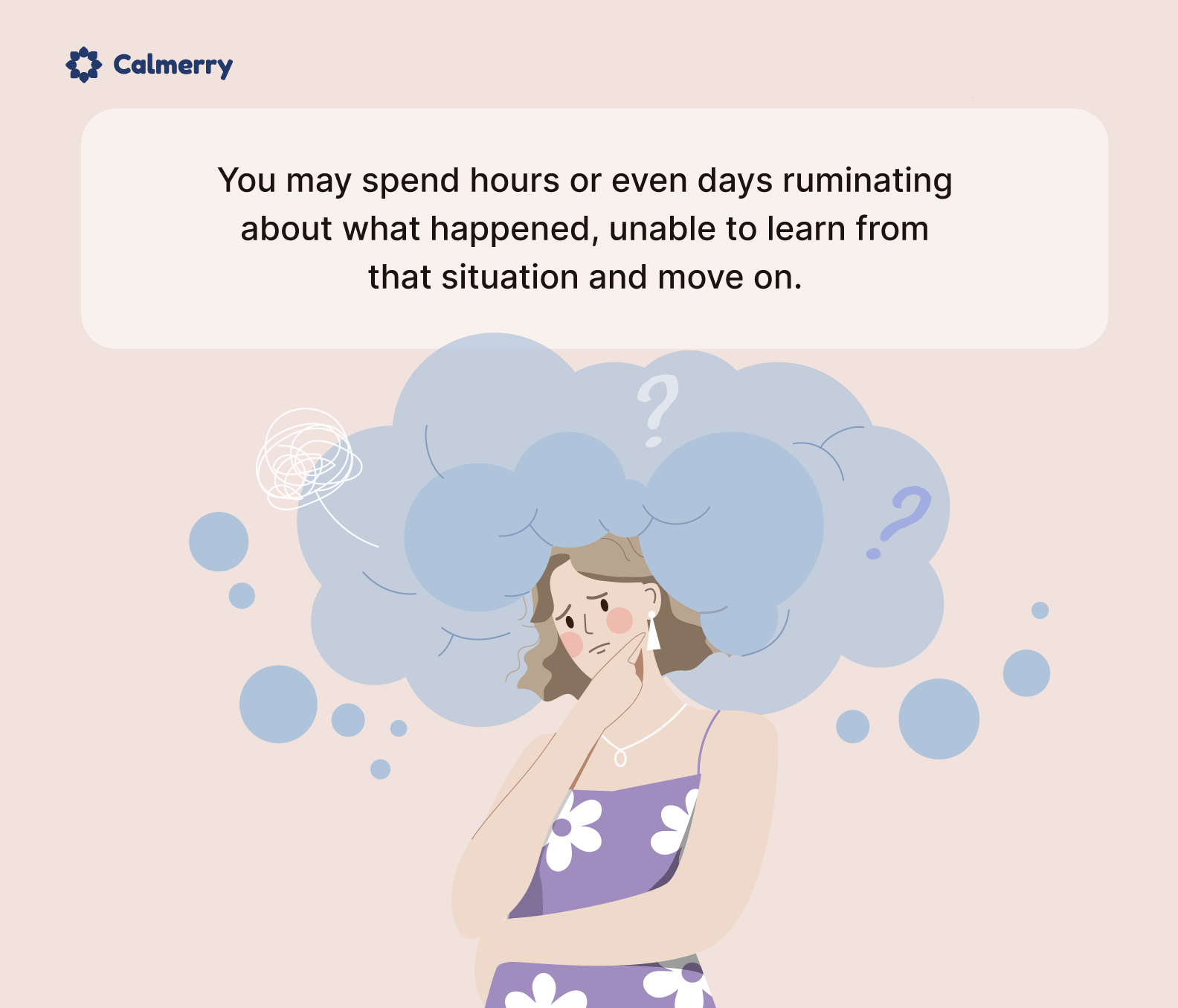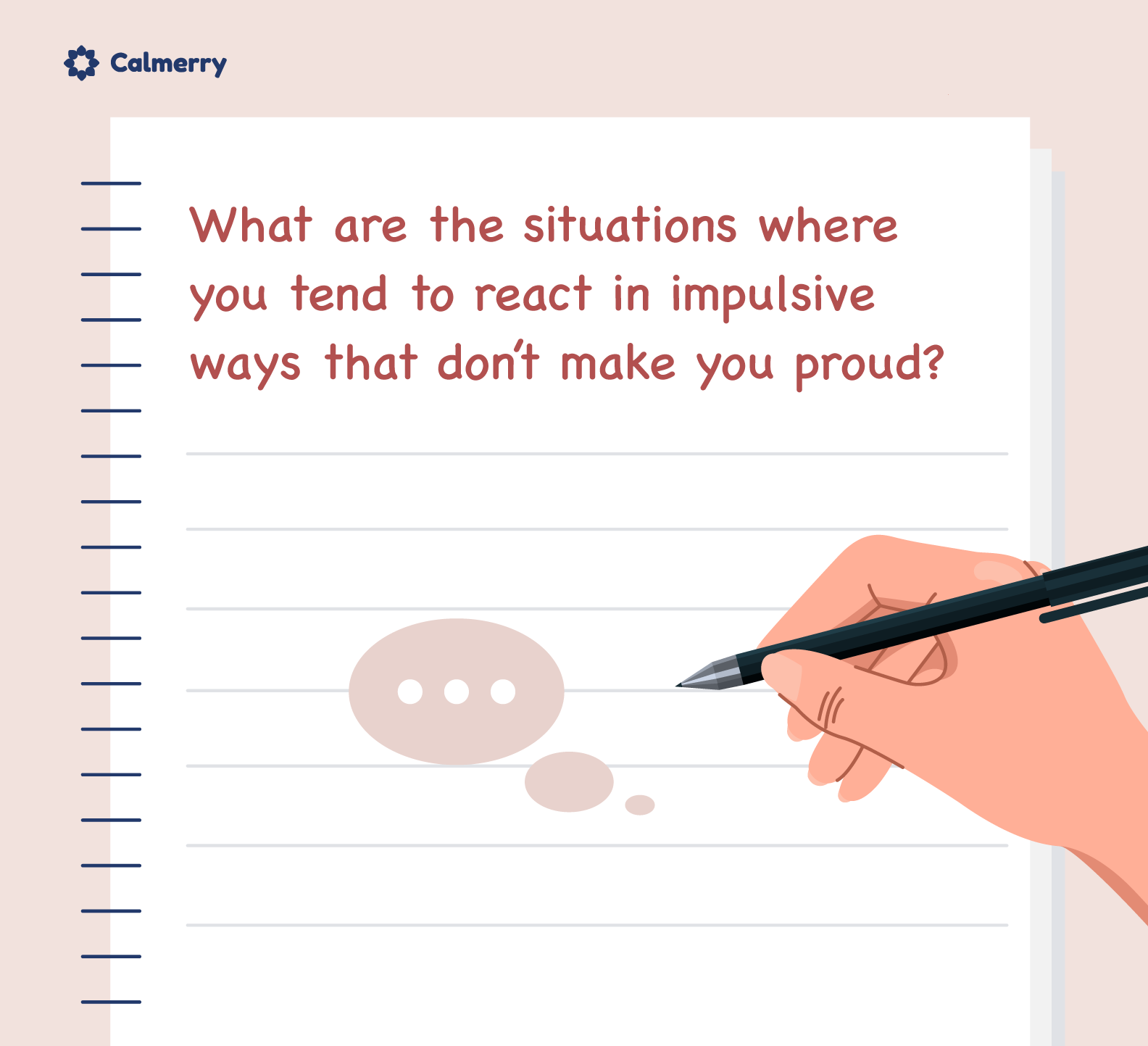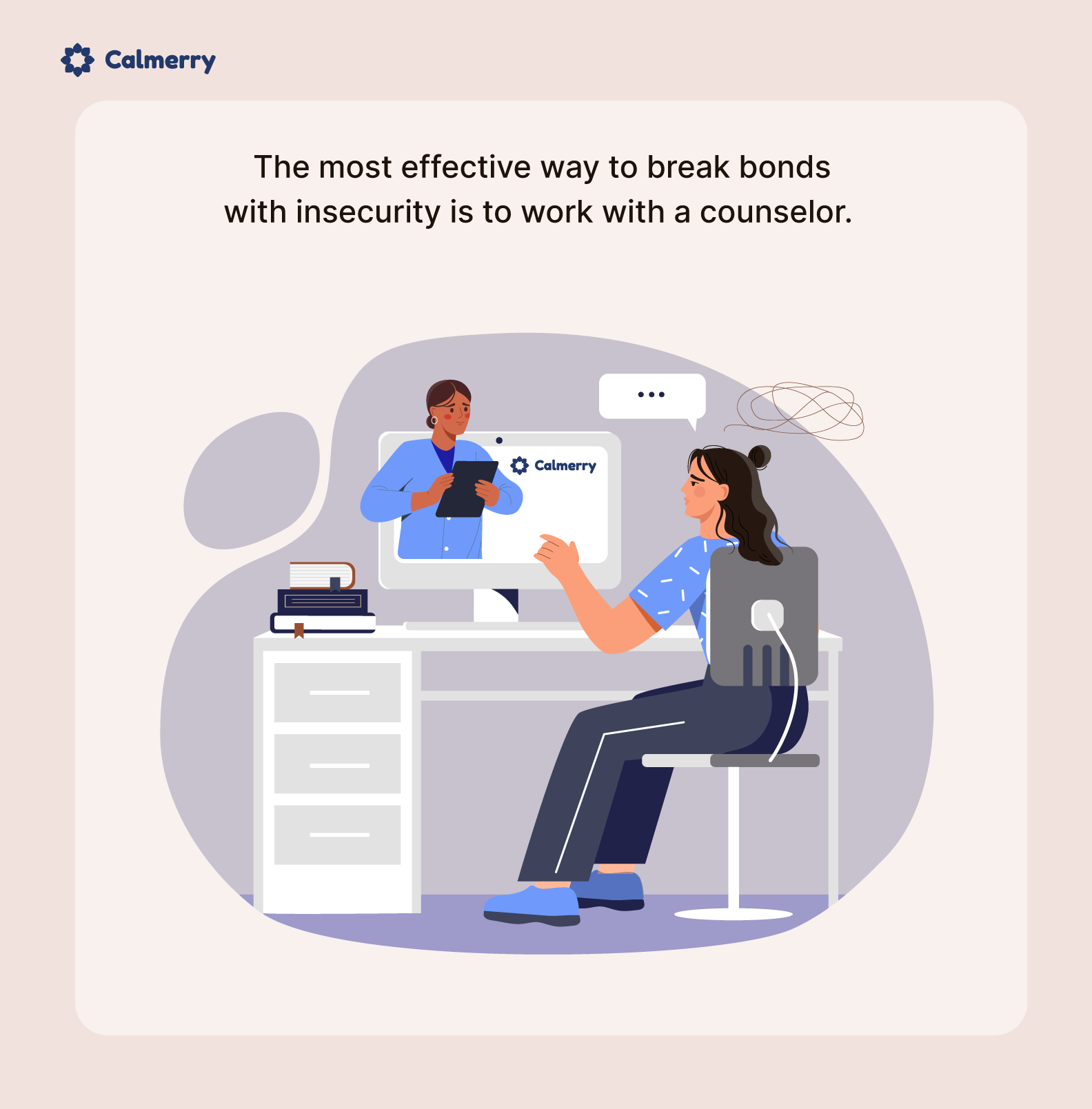How Not to Take Things Personally – 8 Efficient Tips

In this article
Do you always blame yourself when others don’t treat you well? Are you too worried about others’ opinions of you? Do you get emotional and defensive to any form of criticism?
These can be signs that you personalize things, and this can come with a huge emotional and mental toll on you.
The emotional impact of personalizing situations
When we consistently view neutral events as personal attacks, our emotional well-being takes a great hit. The habit can consume our day-to-day life and render us incapable of viewing the bigger picture in challenging situations.
The tendency to read every comment or action as a statement about our worth creates unnecessary tension. It’s hard to have healthy relationships when we’re constantly taking offense where none is meant.
This emotional response is generally the product of unconscious insecurities that activate defenses. Developing some distance from these overly sensitive reactions and habits is the start of emotional freedom.

How to know when you’re taking something too personally
Understanding when you’re personalizing can be easier said than done. However, there are some hints that indicate when your reaction is bigger than what the situation calls for.
You might catch yourself getting reactive to minor comments or criticisms. Perhaps you spend hours brooding over somebody’s offhand comment, trying to gauge what they “really meant.”
One other clear sign is if you find yourself automatically assuming negative intent in people’s actions. If you’re constantly assuming people are trying to annoy or offend you, it’s possible you’re taking things more personally than you should.
If constructive criticism is received as a personal attack, then this demonstrates that your trigger responses are being activated. The ability to objectively see situations becomes disrupted when we’re too concerned about other people’s approval.
Benefits of taking things personally
Although it is largely beneficial to discover how not to take things personally, there are some positives to emotional sensitivity that cannot be overlooked.
Empathy and a compassionate attitude toward others tend to be more pronounced in sensitive individuals. Sensitivity can also help you recognize when real boundaries are being crossed or if someone’s behavior is truly toxic.
People who are emotionally sensitive by nature are usually more attuned to subtle social cues. Such attunement can be an asset in forming profound relationships if it is balanced with emotional resilience.
However, the catch is in finding the right balance. Personal growth happens by learning to discern when to invest emotions and when not to.

Why do I take things personally?
Personalization is one of the most common patterns of the human mind. We can only experience life as ourselves, so it leads us to think of ourselves as the center of our world. We view each conversation, event, situation, etc., in terms of how it relates to us.
Not seeing the bigger picture has detrimental effects. We respond to others’ actions and words as if they are personal remarks or judgments about us. The second skewed manner of thinking involves assuming something is mind-reading. It’s a supposition that the other individual is making a negative judgment about you.
This may occur when you misunderstand another person’s statement, when there’s a communication breakdown, or when the situation is unclear and you haven’t received any overt response.
Psychological causes
Low self-esteem is typically responsible for our tendency to interpret feedback as confirmation of our worst fears regarding ourselves. Past rejection or harsh criticism can leave us hypersensitive to perceived criticism of any kind.
Insecurities cause us to unconsciously seek out evidence that corroborates our negative assumptions about ourselves. This creates a dynamic whereby neutral interactions become internalized as personal attacks.
If you tend to take things personally when they are not personal, it might be because you feel insecure and are projecting your insecurities onto other people. You may think people will dislike something you don’t like about yourself. You expect others to doubt your abilities to do things that intimidate you. You may also expect others to reject what you reject in yourself.
– Iryna Horkovska, Special education teacher
Cognitive distortions
Our brains try to save time by making us expect the worst in other people’s intentions. This distortion leads us to perceive ambiguous situations in a negative manner.
Another cognitive trap is overgeneralization, where one negative encounter is turned into evidence that “everyone” has negative feelings towards us. This error of thought maximizes the emotional impact of each event.
These biases are automatic, making the objective assessment of situations challenging. It is essential to be aware of these mental shortcuts to be able to change our responses.
Emotional sensitivity
Too much empathy, while generally a virtue, can cause us to adopt others’ emotions as our own. We may own others’ feelings even when their feelings are not about us.
Fear of rejection can cause us to be ever vigilant for signs of disapproval from others. This hypervigilance makes every social interaction a possible threat to our belonging.
Humans struggle with the vulnerability of opening up. Fear of being hurt can lead even to positive criticism being felt as an attack.

What happens when you take things too personally?
It is a destructive habit that drains all your energy and positivity and makes you doubt your self-worth constantly.
You get hurt, offended, overlooked, or betrayed by somebody and get angry and somewhat aggressive. Then you spend hours or even days dwelling on what had occurred and can’t seem to learn from that experience and move on.
Taking things personally is exhausting and overwhelming. It can result in negative, self-limiting beliefs that stop you from pursuing your dreams and achieving success in your professional life.
You will feel more stressed and anxious
When we regularly take neutral situations personally, we are chronically stressed. This long-term state of emotional arousal has severe consequences for our mental well-being.
Anxiety escalates as we anticipate upcoming interactions with dread. Fear of being judged or criticized results in a cycle of worry that interferes with being in the moment.
This added stress may also manifest physically, affecting sleep, appetite, and overall health. The body does not distinguish between real danger and perceived emotional danger.
Strained relationships and communication breakdowns
Relationships become strained when we regularly misinterpret others’ actions and words. Friends and family members may feel like they’re walking on eggshells around us.
Communication becomes difficult when every conversation feels like it’s loaded with the potential for a fight. Others will withdraw rather than risk making a comment that triggers an emotion.
This tendency can turn into a self-fulfilling prophecy where people actually start avoiding us. The rejection that we fear becomes increasingly inevitable due to our defensive behavior.
Low self-esteem and emotional well-being
Constantly looking for cues of disapproval from others erodes our self-esteem in the long term. We begin questioning our own worth and second-guess every decision that we make.
This wounds our happiness since we let others dictate our self-opinions. This external dependence prevents us from creating a solid sense of self.

Learn how to stop taking things personally
Anyone can learn to stop and prevent the stress that comes along with it. We don’t respond naturally in a non-personal way, but this is a skill that must be acquired. Below are some practical tips on how to stop taking things personally.
Know your triggers and reaction patterns
Self-awareness is a valuable skill for anyone, and it’s especially handy in being aware of your trigger patterns.
Under what circumstances do you tend to react impulsively in ways that you are not proud of? We might not always be able to manage such triggers, but we can manage our reaction to them.
Once you hear and learn why these patterns upset you, you’ll be more in control of the situation. You won’t be just blindly reacting to them. You’ll know why you’re reacting that way and will be able to adjust accordingly.
Reacting opposite to the urge, fuelled by emotion tied to the trigger, is critical in reducing the power of the trigger and why it exists in the first place!
– Tiffany Lovins, Licensed Mental Health Counselor (LMHC)

Shift your focus – it’s not always about you
Although it may seem personal, people don’t often do things because of you – they do them because of their own needs and wants.
Others’ reactions and behavior are preoccupied with their views and experiences. So, when the going gets rough, you should always try to expand your perspective and look at what is happening from a person’s perspective.
Ask yourself, “What else can it mean?” What if there could be another explanation for a person’s words and actions? Try to find something positive in the other’s intent. This mindset will enable you to see the situation objectively and make space for understanding rather than irritation.

Develop emotional resilience
Most people who take things personally work so hard to be perfect and flawless so that no one will judge them. They get very disappointed when they get negative feedback because it feels like everything they worked for was in vain.
One way is to change your perfectionism, which requires effort and time. Be kind to yourself and accept that you cannot be perfect every time. Know your value and try to accept yourself as a person. Try to recognize that you are enough as you are and that there are people who like you and your personality.
It may be useful to reflect on what your perfectionism is accomplishing for you (e.g., as a protection against disappointment or to prevent harm), or better stated, what you think it is doing for you. Take note of where this tendency is creating more harm than good. For example, realizing that “If I claim all responsibility as mine associated with any one outcome, then I will consistently end up feeling more disappointment or blame when things don’t go as planned. Even when they are not within my control.”
Improve communication skills – ask for feedback instead of assuming
Don’t make negative assumptions because it is a surefire way of creating misunderstandings and conflict. If unsure, don’t hesitate to ask people what they mean. Give them a second opportunity to repeat themselves or clarify their thoughts.
Just do so tactfully without being emotional, blaming the other, and provoking reactions. Oftentimes, it’s helpful to come from a position of curiosity.
There are also times when it’s suitable to be vulnerable, open up, and let the other person in on your feelings. That way, you can increase the chances that they’ll understand you and consider your needs.
Challenge the assumptions when you catch yourself taking something personally. Take a step back and objectively examine the evidence.
Ask yourself questions like:
“What are the facts of the situation, aside from my emotions?”
“Are there any other explanations for this person’s actions that are not a personal attack?”
“Who or what else is accountable for the course of this situation’s result?”
You may also be projecting your own self-criticism or doubts onto other people. Ask yourself if your conclusion aligns with the other person’s typical behavior and communication style.
Set boundaries and establish expectations
Focus on what you can control rather than trying to control other people’s thoughts. As we have seen above, you are in control of selecting your thoughts, emotions, and reactions to any situation. You cannot control other people’s actions, but you can take control of your reactions.
If you get caught up in taking things personally, redirect your attention to your goals and priorities. Ask yourself, “What is most important to me here, and how can I act in alignment with my values?”
Setting healthy boundaries means protecting your emotional energy from people who chronically drain it. Not everyone deserves to enter your inner world or have the power to affect your mood.
It’s also helpful to address your expectations of others. If we assume everyone will be kind and considerate, we’re setting ourselves up for disappointment.

Practical strategies to strengthen emotional resilience
Building emotional resilience requires time and practice. These tools like mindfulness and journaling can also allow you to build a stronger sense of self that isn’t dependent on other people’s approval.
Mindfulness and self-awareness techniques
Mindfulness exercises enable you to observe your feelings and thoughts without responding to them immediately. This creates a gap between stimulus and response, making reflective responses possible.
A daily mindfulness meditation practice can alert you to when you are starting to take something personally. This is the first step in being able to choose a different response.
Methods like deep breathing and body scan can keep you grounded when you feel your emotions becoming reactive. These practices strengthen your ability to remain grounded in challenging interactions.
Self-awareness exercises make you know yourself and your patterns and reactions better. The more you know yourself, the less you take others’ behavior personally.

Journaling for processing emotions objectively
Techniques like journaling and writing down your experiences can provide insight into things that at first seem personal.
When you write down something that occurred and bothered you, you typically discover that your impression was formulated through your own fears and not facts. It helps you evaluate your feelings and hijack your thought patterns.
Practicing detachment and letting go of external validation
It is also necessary to learn to release outcomes and others’ opinions for freedom. This does not mean becoming detached, but not deriving your self-esteem from outside sources.
Attempt to release the need for everyone to like or approve of you. Instead, try living up to your personal standards and values. Develop internal validation by complementing your own success and progress. Be your own support and encouragement.
Remember that you don’t take it personally when someone hates a movie that you love – use the same logic for interpersonal relationships. Other people’s tastes and reactions are a commentary on them, not you.
Seeking professional help if needed
Sometimes, the tendency to personalize is so ingrained that the help of a professional is useful. A therapist can help you realize why the pattern is taking place.
Consulting with a counselor or psychologist gives you an objective ear for your patterns. They can make you aware of blind spots in your thought process that are leading you to take things so personally.
Don’t be afraid to get help if this pattern is really affecting your relationships or your well-being. It’s easy to fall into a vicious cycle of negative thoughts when you are not doing anything. But if you are busy, it’s hard to have time to think about others and care about what they think.

Conclusion
It requires patience, practice, and self-kindness to learn not to take things personally and to extinguish this habit. The suggestions in this article can help you become stronger and have healthier relationships.
Remember that maturity does not happen overnight. Be patient with yourself as you learn to shift your perception and to create healthier response patterns.
Having the ability to remain centered regardless of others’ actions and words is a powerful tool. It allows you to retain your self-esteem regardless of what transpires externally, leading to greater peace and confidence in your daily interactions.
Consult a counselor. It will help you feel more in charge of your emotions and reactions and more empowered by understanding how not to take things personally at work and in your relationships.
They can help you recognize patterns or blind spots that may be contributing to your tendency to take things personally – and provide guidance on how to alter them. Another avenue is to try online counseling on Calmerry, where you can match with a licensed counselor who will work with you to help you undo the habits that are holding you back.
Taking things personally is exhausting and overwhelming. It can contribute to negative, self-limiting beliefs, preventing you from pursuing your goals and achieving success in your career.
– Iryna Horkovska, Special education teacher
FAQ
Why do I take everything so personally?
Getting so personal usually has to do with insecurities, past rejection experiences, or profound fears. When we’re not secure in ourselves, we’re more prone to view neutral situations as attacks on us. Our brains are programmed to seek out danger, and if we’re already in a vulnerable state, we might see criticism where there isn’t any.
How do I avoid overthinking and making negative assumptions?
The solution is to challenge your first assumptions and look for alternative explanations. When you catch yourself making negative assumptions, halt and ask, “What else can this mean?” Attempt to give individuals the benefit of the doubt and remember that most people are busy with their own lives, not critiquing yours.
What are some practical techniques to build emotional resilience?
Building emotional resilience involves forming habits, setting healthy boundaries, and being kind to yourself. Regular meditation, journaling, and awareness exercises can render you less reactive to others’ words and actions. Try to form internal validation rather than seeking approval from others all the time.
How do I handle criticism without feeling hurt?
It is essential to learn to differentiate between feedback and personal attacks. Trying to view criticism as information, rather than judgment, is useful. What can you learn from criticism, and somebody’s opinion does not define you? Learn to receive remarks with curiosity, rather than defensiveness.
Can therapy help me stop taking things personally?
Yes, therapy can be extremely helpful to manage patterns of taking things personally. A mental health professional can help you comprehend the root causes of this tendency, whether it is past trauma or insecurities. They can also provide case-specific strategies and techniques, which will ensure the change process is more efficient and lasting.
online therapy
live video session




